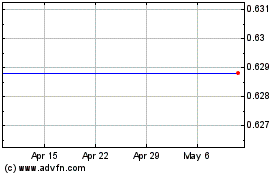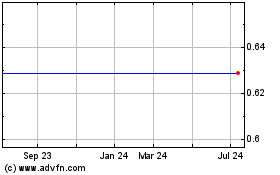-- Cooperative Research and Development
Agreement to Evaluate Activity of Eleven’s Targeted Therapeutic
Vicinium in Combination with the Immune Checkpoint Inhibitor
Durvalumab --
Eleven Biotherapeutics, Inc. (NASDAQ:EBIO), a late-stage
clinical oncology company advancing a broad pipeline of novel
product candidates based on its Targeted Protein Therapeutics
(TPTs) platform, today announced the signing of a Cooperative
Research and Development Agreement (CRADA) with the National Cancer
Institute (NCI) on the development of Eleven’s targeted
therapeutic, ViciniumTM in combination with AstraZeneca’s immune
checkpoint inhibitor, ImfinziTM (durvalumab), for the treatment of
non-muscle invasive bladder cancer (NMIBC).
“Despite current therapies and surgical regimens, there remains
a large unmet need for patients with recurring or progressing NMIBC
that is no longer responding to Bacillus Calmette-Guérin (BCG),”
said Stephen Hurly, President and Chief Executive Officer of Eleven
Biotherapeutics. “While we remain internally focused on advancing
our Phase 3 registration trial of Vicinium as a monotherapy,
preclinical data suggests that Vicinium also has the ability to
potentiate the activity of immuno-oncology agents. We are pleased
to enter into this collaboration with the National Cancer Institute
and AstraZeneca, which broadens the scope of our ongoing clinical
program and enables us to evaluate Vicinium together with Imfinzi,
a PD-L1 checkpoint inhibitor. We look forward to generating
additional data, as we continue to advance Vicinium and work
expeditiously to bring it forward as a new treatment option for
patients with NMIBC.”
Vicinium, like Eleven’s other TPTs, is a single protein molecule
composed of an antibody fragment genetically fused to a potent
cytotoxic payload. Vicinium selectively binds to epithelial cell
adhesion molecules (EpCAM), a cell surface marker that is highly
expressed on many cancers, including high grade NMIBC, but that is
present at minimal to no levels on healthy bladder tissue. After
binding to EpCAM on the surface of the tumor cell, Vicinium is
internalized into the cell where its potent cytotoxic cell killing
payload, Pseudomonas Exotoxin A (ETA), is released, disrupting
protein synthesis and leading to cell death.
At the American Association for Cancer Research Annual Meeting
in April 2017, new preclinical data were presented demonstrating
that cancer cells treated with VB4-845, the active pharmaceutical
ingredient used to formulate Vicinium, undergo immunogenic cell
death (ICD). ICD is known to stimulate host immune responses
against cancer. This supports the hypothesis that Eleven’s TPTs not
only directly kill tumor cells, but also induce a host immune
cell-mediated anti-tumor response. This suggests that they are
differentiated from existing treatments, and that they may have
synergy with checkpoint inhibitors and other immuno-oncology
compounds.
Under the terms of the CRADA, the NCI, led by principal
investigator Dr. Piyush Agarwal of the NCI Center for Cancer
Research, Urologic Oncology Branch, will conduct a Phase 1 clinical
trial in patients with high-grade NMIBC to evaluate the safety,
efficacy, and biological correlates of the Vicinium and durvalumab
combination therapeutic strategy. Patients will be evaluated for
response and recurrence throughout the study. For referrals, please
contact Sonia Bellfield, Research Nurse, at 301-435-6255.
Vicinium is currently in a Phase 3 registration trial for the
treatment of high-grade NMIBC. Eleven expects to complete patient
enrollment in the second half of 2017, and to report topline
3-month data in the second quarter of 2018. Imfinzi, in development
by AstraZeneca and its biologic research arm, MedImmune, is a human
monoclonal antibody directed against programmed death ligand-1
(PD-L1), that has accelerated approval by the FDA for the treatment
of patients with locally advanced or metastatic urothelial
carcinoma who have disease progression during or following
platinum-containing chemotherapy, or have disease progression
within 12 months of neoadjuvant or adjuvant treatment with
platinum-containing chemotherapy, regardless of PD-L1 status.
About ViciniumTM
Vicinium is a single protein anti-epithelial cell adhesion
molecule (anti-EpCAM) fusion protein fused with Pseudomonas
Exotoxin A (ETA) designed to specifically target and deliver a
potent anti-cancer payload directly into tumor cells. Vicinium is
currently in a Phase 3 registration clinical trial for the
treatment of high-grade non-muscle invasive bladder cancer (NMIBC)
in subjects who have previously received two courses of Bacillus
Calmette–Guérin (BCG) and whose disease is now BCG-unresponsive.
Eleven Biotherapeutics intends to enroll 134 subjects in the trial,
including 77 subjects with carcinoma in situ (CIS), at over 70
centers in the United States and Canada. Primary and secondary
endpoints include complete response (CR) rate in CIS subjects, time
to disease recurrence and event free survival.
About Imfinzi™ (durvalumab)
Imfinzi (durvalumab, previously known as MEDI4736) is a human
monoclonal antibody directed against PD-L1, which blocks the
interaction of PD-L1 with PD-1 and CD80.
Durvalumab is also being tested in the 1st-line treatment of
patients with unresectable and metastatic bladder cancer as a
monotherapy and in combination with tremelimumab, a checkpoint
inhibitor that targets CTLA-4, as part of the DANUBE Phase III
trial, which had the last patient commenced dosing during the first
quarter of 2017 (global trial, excluding China). Additional
clinical trials are ongoing to investigate durvalumab as
monotherapy or in combination in multiple solid tumours and blood
cancers.
About Eleven Biotherapeutics
Eleven Biotherapeutics, Inc. is a late-stage clinical oncology
company advancing a broad pipeline of novel product candidates
based upon the Company’s TPT platform. The Company’s TPTs
incorporate a tumor-targeting antibody fragment and a protein
cytotoxic payload into a single protein molecule to achieve focused
tumor cell killing. The Company believes its TPT approach offers
significant advantages in treating cancer over existing ADC
technologies. The Company believes its TPTs provide effective tumor
targeting with broader cancer cell-killing properties than are
achievable with small molecule payloads that require tumor cell
proliferation and face multi-drug resistance mechanisms.
Additionally, the Company believes that its TPT’s cancer
cell-killing properties promote an anti-tumor immune response that
will potentially combine well with immuno-oncology drugs such as
checkpoint inhibitors. For more information please refer to the
Company’s website at www.elevenbio.com.
Cautionary Note on Forward-Looking Statements
Any statements in this press release about future expectations,
plans and prospects for the Company, the Company’s strategy, future
operations, and other statements containing the words “anticipate,”
“believe,” “estimate,” “expect,” “intend,” “may,” “plan,”
“predict,” “project,” “target,” “potential,” “will,” “would,”
“could,” “should,” “continue,” and similar expressions, constitute
forward-looking statements within the meaning of The Private
Securities Litigation Reform Act of 1995. Actual results may differ
materially from those indicated by such forward-looking statements
as a result of various important factors, including: the occurrence
of any event change or other circumstances that could give rise to
the termination of the License Agreement, the uncertainties
inherent in receiving future payments pursuant to the License
Agreement, the uncertainties inherent in the initiation and conduct
of clinical trials, our ability to successfully develop our product
candidates and complete our planned clinical programs, our ability
to obtain marketing approvals for our product candidates,
expectations regarding our ongoing clinical trials, availability
and timing of data from clinical trials, whether interim results
from a clinical trial will be predictive of the final results of
the trial or results of early clinical studies will be indicative
of the results of future studies, the adequacy of any clinical
models, expectations regarding regulatory approvals, our ability to
obtain, maintain and protect our intellectual property for our
technology and products, availability of funding sufficient for the
Company’s foreseeable and unforeseeable operating expenses and
capital expenditure requirements, other matters that could affect
the financial performance of the Company, other matters that could
affect the availability or commercial potential of the Company’s
product candidates and other factors discussed in the “Risk
Factors” section of the Company’s Annual Report on Form 10-K,
Quarterly Reports on Form 10-Q and other reports filed with the
Securities and Exchange Commission. In addition, the
forward-looking statements included in this press release represent
the Company’s views as of the date hereof. The Company anticipates
that subsequent events and developments will cause the Company’s
views to change. However, while the Company may elect to update
these forward-looking statements at some point in the future, the
Company specifically disclaims any obligation to do so. These
forward-looking statements should not be relied upon as
representing the Company’s views as of any date subsequent to the
date hereof.
View source
version on businesswire.com: http://www.businesswire.com/news/home/20170606005342/en/
Stern Investor RelationsHannah Deresiewicz,
212-362-1200hannahd@sternir.com
Sesen Bio (NASDAQ:SESN)
Historical Stock Chart
From Mar 2024 to Apr 2024

Sesen Bio (NASDAQ:SESN)
Historical Stock Chart
From Apr 2023 to Apr 2024
